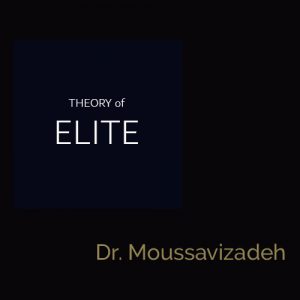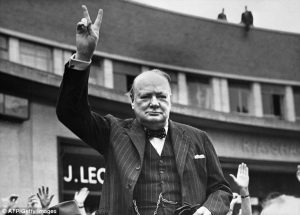Power, and Elite Theories
Power
In the previous chapter we learnt that “the state in contemporary society has a profound impact on people’s lives. From the moment of birth to the instant of death, the destinies of individuals are regulated and controlled by government to an extent previously unknown.”28 The following analogy explains how tied-up the citizen and state relationship is.
Children do not only obey their parents because they know that their parents can reward or punish them, they also believe that their parents have a right, based on age, experience or simply because they are parents to be able to tell them what to do (even if they may not always like it). At school, teachers are not simply obeyed because of their power – pupils accept that teachers should be in a position to tell them. In the main individuals accept that the government should be in a position to run the country. Thus, it could be said that in modern society citizens in fact do expect the governments to interfere.
There are considerable disadvantages for a government which depends solely upon military power to maintain control. In the long term it is important for all people in position of power that they should have their position recognized as legitimate (rightful) By those over whom they have power. Professor B. Crick, in his article. ‘Basic concepts for political education’, has this to say: “probably all governments require some capacity for or potentially of force or violence, but probably no government can maintain itself through time, as distinct from defence and attack at specified moments, without legitimacy itself in some way, getting itself loved, respected, even just accepted as inevitable, otherwise it would need constant recourse to open violence which is rarely the case”.
CRICK. B., ‘BASIC CONCEPTS FOR POLITICAL EDUCATION’, IN B. CRICK AND A. PORTER, POLITICAL EDUCATION AND POLITICAL LITERACY, LONGMAN, 1978.
In this respect the exercise of power become a matter of authority. Authority is the quality of being able to get people to do things because they think the individual or group has the right to tell them what to do. Those in authority are followed because it is believed that they fulfil a need within the community or political system. Authority then is linked to respect, which creates legitimacy and therefore, leads to power.
Furthermore, it could be said that especially in modern times has a decision-making base, because the state decides for citizens actions are shaped accordingly. In other words, A (state) has power over B (the citizens) to the extent that it can get B to do something that B would not otherwise do. According to Lukes “power can be exercised to shape people’s preferences so that neither overt nor covert conflicts exist”.29
Lukes goes on by saying that: “is it not the supreme and most insidious exercise of power to prevent people, to whatever degree from having grievances by shaping their perceptions, cognitions and preferences in such a way that they accept their role in the existing order of things either because they can see or imagine no alternative to it, or because, they see it as natural and unchangeable, or because they value it as divinely ordained and beneficial? To assume that the absence of grievance equals genuine consensus is simply to rule out the possibility of a false or manipulated consensus by definitional fiat”.30



